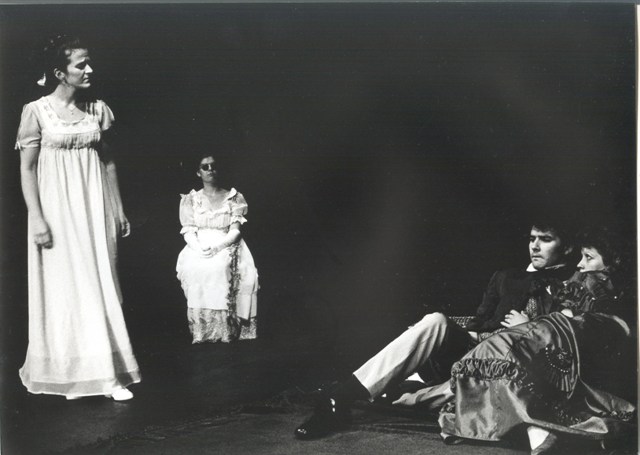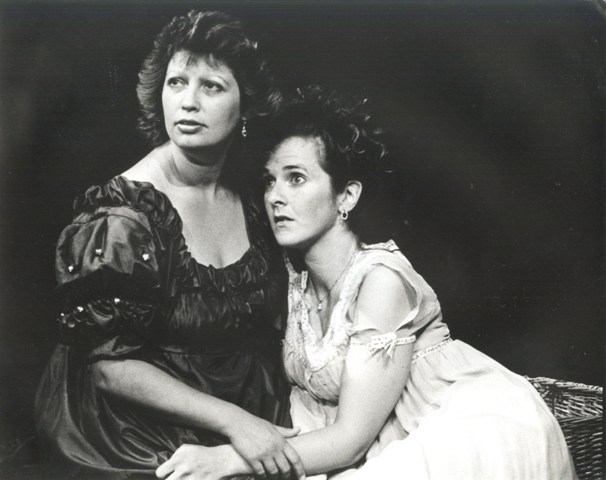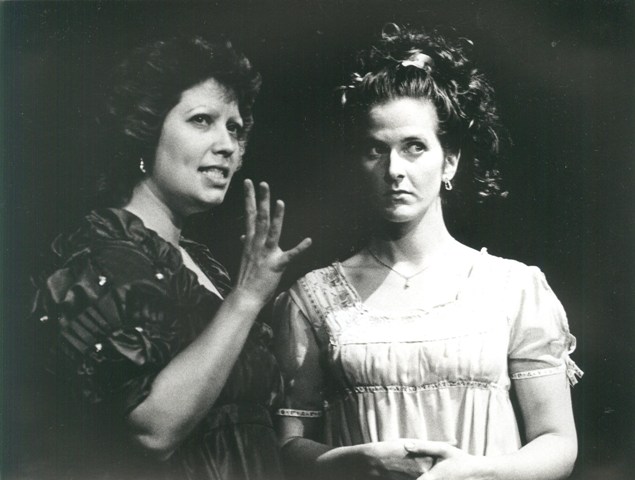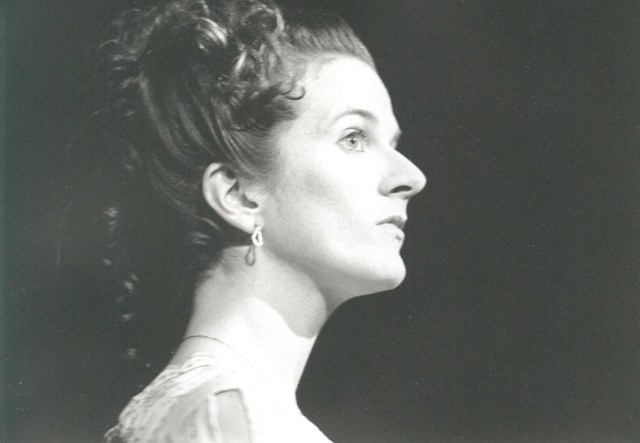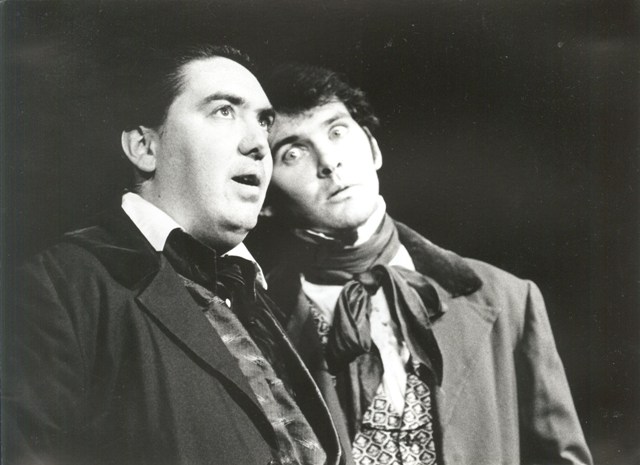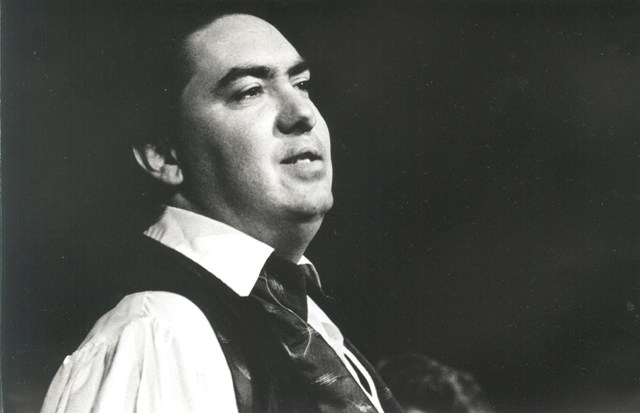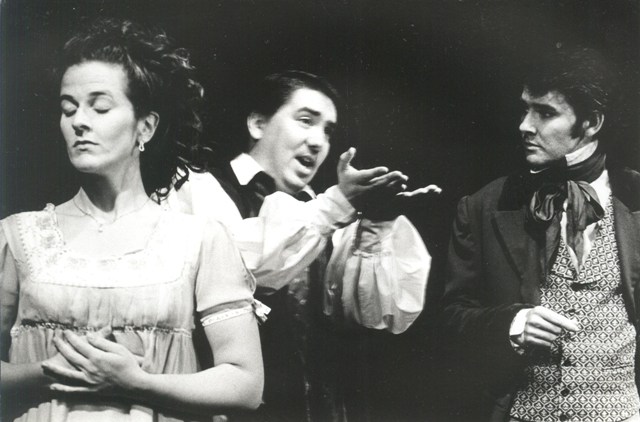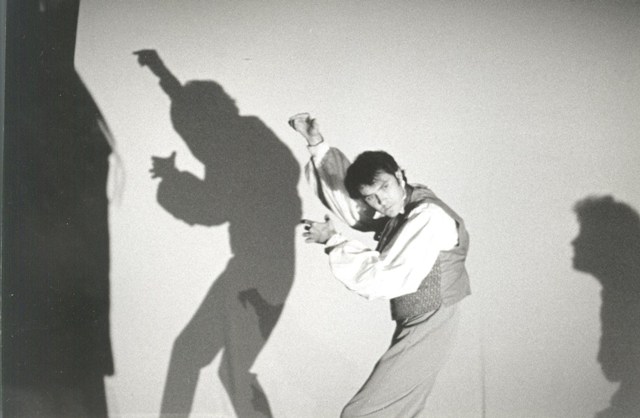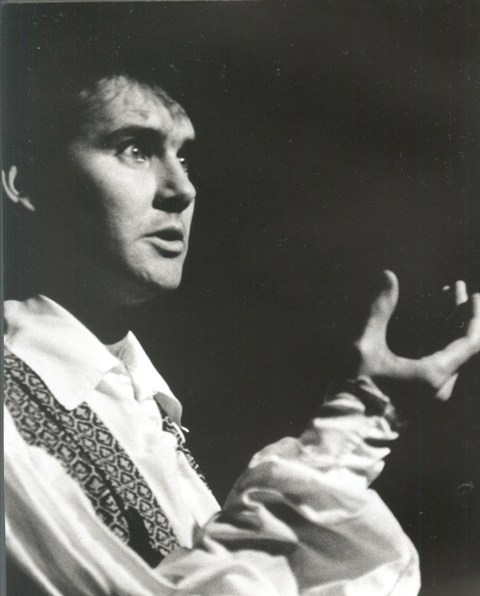The Bench Production
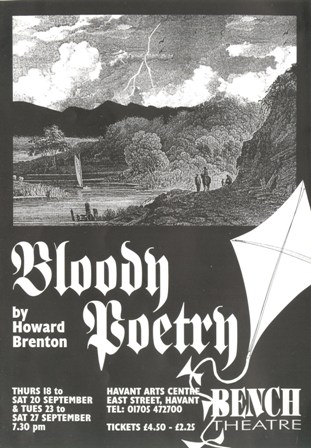
This play was staged at Havant Arts Centre, East Street Havant - Bench Theatre's home since 1977.
Characters
| Percy Bysshe Shelley | Vincent Adams |
| May Shelley | Debbie Money |
| Claire Clairemont | Eve Walker |
| George, The Lord Byron | Damon Wakelin |
| Dr William Polidori | Pete Woodward |
| Harriet Westbrook | Sam Coombes |
| Voice | Sam Coombes |
Crew
| Director | Andy Rees |
| Stage Manager | Chris Stacey |
| Assistant Stage Manager | Mike Hickman |
| Lighting Design | Liv Stobseth-Brown |
| Publicity | Neil Pugmire |
| Handbill | Pete Woodward |
| Costumes | Simon and Sue Walton |
| Programme Editor | Andrew Caple |
| Photographs | John Plimmer |
Director's Notes
The play as I have chosen to interpret it, portrays a man obsessed - "driven along" - by his art. Even to the extent of trying to invent his life as a form of art. But equally, a man who felt that things must change - and felt so with a violence that worked itself out on all around him. Also, however, just a man and vulnerable to the little lusts and selfishness that characterise us all.
It's not a historical play - the events are true (as far as we know), the characters existed, but this is not biography, I think obsession is a timeless theme and that is the play's main theme. It also sheds an oblique light on the creative process and the cost of the creative process and that's a rare theme for a play. But it's fascinating for us to eavesdrop on the conversations two great literary figures might have had.
The play shows Bysshe at the centre of a menage a trois, with his second wife Mary and her half-sister Claire Clairemont. They shared a sense of breaking the convention of family life and of living a life based on their love for each other, unconstrained by "the feudal savagery" of marriage. Lord Byron was recruited to the cause but was too much of a libertine to be constrained in any way at all - and certainly not just because he'd fathered a child. Byron is therefore always slightly distant from the threesome, who are, perhaps, always slightly nervous of him.
Polidori and Harriet share the stage as observers. Polidori relating to us his "literary reminiscences" and Harriet speaking from the spirit world which seemed to half-claim Bysshe, though he sought so hard to deny it - "this world is mother of all we know".
In the end life treats them with the same cruel indifference it treats us all.
So it's the bloody poetry of revolution and it's the "bloody poetry again" of putting up with a creative genius wrecking your life.
Above all it's a play full of glorious exuberant language. A play to be listened to as much as seen. It's a play full of wit not all of it subtle. I think it's tremendous and I hope you enjoy it.
Andy Rees
Reviews
The NewsMike Allen
It should be heard and not seen
What would we have missed if we had heard but not seen Howard Brenton's play about Shelley, Byron and their women? The leer and flickered sneer of Dr Polidori, the biographer held in intellectual contempt by the poets. An occasional grope or caress. A licking over of logs by Shelley. Not much else. And if those were sacrificed, what would we gain? A greater concentration on the heightened language. But even as a radio play it would improve for being cut.
Director Andy Rees and his Bench Theatre team do their best. Tempi and dynamics are sensibly varied. But once Vincent Adams, moodily lit, has established Shelley's credentials as poet, once Damon Wakelin has flourished Byron's arrogant bestiality and infected Shelley with it, and once we have seen their women suffer, the main points have been made. A brave but misguided choice. Continues until next Saturday.
The News, 19th September 1997
